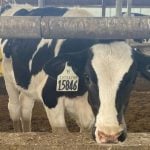Marketing is in a class by itself. Nowhere else in agriculture is there so much more noise than information, or so many claims based on untested and untestable evidence.
As a rule, of course, the entire financial and business ends of farming let us down in this regard, and I have complained in this space in past that when it comes to the biggest decisions they will ever make — decisions about succession, incorporation, expansion, etc. — farmers need much more rigorous ways of evaluating their sources of information and advice.
Read Also

The big squeeze: How to be fair to siblings during farm succession
Managing sibling business relationships on family farms.
This is especially true of marketing, where the lack of research is not only tolerated, it’s ignored.
It’s as if we don’t think that research into marketing can really help us because, let’s face it, any one year is likely to be so different from any other year, and any one farm or region is likely to be so similarly different from any other farm or region that it’s impossible to draw any permanent lessons.
What we actually haven’t faced, however, is the fact that, based on the bit of research that we do have, suggests more research is sorely needed.
- More ‘Editor’s Desk’ with Tom Button: Are they right this time?
It’s already been seven years since we reported on University of Illinois studies by Scott Irwin and Darrel Good, comparing the performance of market advisory services.
The researchers subscribed to some 23 different market services from 1995 through 2005 and then tracked how farmers would have fared if they had taken their advice.
Farmers are used to hearing marketing experts chide them for proverbially selling two-thirds of their crop in the bottom third of the market. Yet it turns out that the best marketing services also struggle to sell in the top half.
And there’s worse to come because, according to the research, the fact that a marketing service beats the market this year doesn’t predict whether it will beat the market next year.
This doesn’t mean that advisory services aren’t worthwhile. Nor does it mean that there aren’t any meaningful differences between your potential sources of information.
But it does mean that we need more science in our marketing. The few studies that actually put different marketing strategies to the test do come up with meaningful results, often demonstrating that selling incrementally through the year provides the best long-term average price.
The point is, business research in Canada is sadly lacking, especially in agriculture, and until enough farmers pressure enough farm organizations to work for change, it will continue to be underfunded. Yet few research investments could return more to this country’s farmers.
Let me know what you think. I’m at [email protected].
Tom Button is editor of Country Guide magazine












